The 9th Asian Air Gun Championships (Men and Women) is being held from December 3 to 9 at Azadi Sports Complex. This is the second time Iran hosts the tournament.

According to a contract signed with Islamic Republic of Iran Shipping Line (IRISL), South Korea’s Hyundai Heavy Industries Company, Ltd. (HHI) will build mega-container vessels as well as tankers for carrying petroleum products for Iran, IRNA reported on Friday.
The contracts were the first of their kinds that Iran has signed after the removal of sanctions in January. They were sealed between Hyundai Heavy – the world’s biggest shipbuilder – and the Islamic Republic of Iran Shipping Lines (IRISL) – the biggest shipping company of the Middle East – at a total value of above $600 million, Press TV reported.
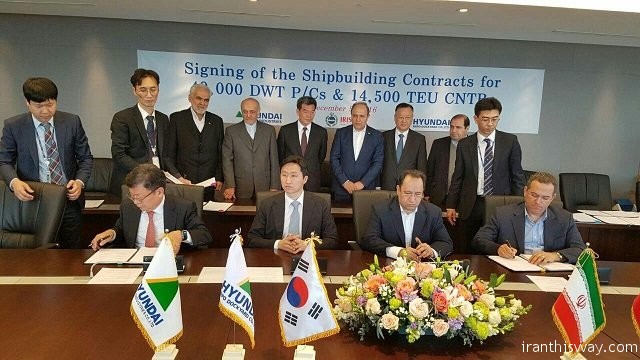
The contract is the first of its kind in Iran’s post-sanction era and includes construction of mega-container vessels with 14,500 twenty-foot equivalent units (TEU) capacity and tankers with 49,000 deadweight tonnages (DWT).
The mega-container vessels are to be built in HHI’s yard and the tankers will be constructed in Hyundai Mipo Dockyard Company’s (HMD) yard under International Maritime Organization (IMO) standards and applying Regulations for the Prevention of Air Pollution from Ships (NOX emission limits).
The funding for the orders would be provided by South Korean banks and financial institutions.
A Hyundai Heavy spokesman said on Monday that IRISL was in talks with the ship builder over a 10-ship order, but gave no details, WSJ reported.
The first deliveries are expected in 2018, according to the report.
The ULCVs that have been ordered to be built will be the first of a new generation of vessels that Iran will acquire,” the IRISL announced in a statement. Hyundai Heavy is expected to start delivering the vessels from the second quarter of 2018, IRNA added.
Discussions with the company over IRISL’s vessel orders had started last December.
The contracts were parts of the IRISL’s plans to renovate its fleet through a total investment of $2.5 billion, The Wall Street Journal had earlier reported.
The company operates about 115 oceangoing vessels, but many of the ships are old.
As Iran moves to build modern fleets, its companies have been chartering vessels from Greek and other owners to build market share in container and tanker cargoes.
The Iranian shipping line hopes the container order will give it the necessary capacity to eventually join one of three major shipping alliances that move the vast majority of global containerized cargo, IRISL officials have said.
Annual seaborne trade between Iran and the European Union amounted to $15 billion before the first broad, international sanctions were imposed on the country in 2008. Tehran expects to return to that level by 2020.
The Iranian orders will be a welcome respite for shipbuilders suffering from a virtual halt of new orders as shipping is trying to cope with glut of tonnage in the water estimated at 30% above demand.
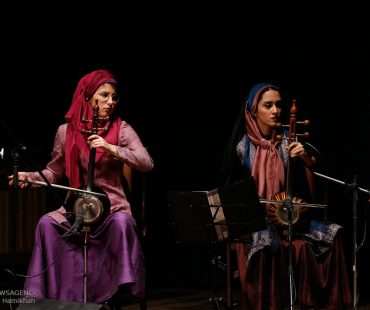
Traditional Iranian vocalist, Salar Aghili, performed a concert in Hamedan. Salar Aghili was born in Teheran/Iran in 1977. He is regarded as one of the foremost Persian classical vocalists of his generation. Salar has studied under the guidance of Sediq Taarif and has combined the training in the vocal repertoire of the old tra- ditionwith the skilful and delicate contemporary style of master Mohammad Reza Shajarian. As a young and distinguished vocalist he has gained attention internati- onally through his collaboration with renowned musicians, composers and ensem- bles from many countries as well as Iran, through his performances onwell-known music festivals and music scenes all over the world. He has released recordings in Iran and Europe.
Welcome to Hamadan
Known in classical times as Ecbatana, Hamadan was once one of the ancient world’s greatest cities. Pitifully little of antiquity remains, but significant parts of the city centre are given over to excavations and there is a scattering of historical curiosities.
Sitting on a high plain, Hamadan is graciously cool in August, but snow-prone and freezing cold from December to March. In the summer the air is often hazy, but on a rare, clear spring day there are impressive glimpses of snow-capped Mt Alvand (3580m) preening itself above the ragged neocolonial cupolas of Imam Khomeini Sq. A popular summer retreat, Hamadan’s main draw card for Iranian visitors is its proximity to the Ali Sadr Caves, but these are vastly over-rated./ lonelyplanet.com

Deputy oil minister said Iran and China will jointly launch a three-billion-dollar oil project today to develop and optimize Abadan Refinery.
Managing Director of National Iranian Oil Refining and Distribution Company (NIORDC) Abbas Kazemi, while expounding on the first major agreement between Iran and China in the post-JCPOA era, said “following months of negotiations between NIORDC and Sinopec Company, implementation of the first phase of development, optimization and improvement of production processes got on way in Abadan Refinery as the largest Iranian oil refinery complex.”
The official noted that the first phase of the refinery project requires 1.3 million dollars of monetary and financial resources asserting “the second developmental phase will be also carried out in partnership with China’s Sinopec.”
Emphasizing that the two phases of development project in Abadan Refinery would demand an aggregate total of three billion dollars of investment, he underlined that Iran enjoys 15 per cent of the share in the project while the rest of the share will be supplied by Chinese financers.
NIORDC managing director emphasized that China Export & Credit Insurance Corporation (commonly known as Sinosure) will undertake the financing of the developmental project in Abadan Refinery; “the operation primarily aims to reduce production capacity of fuel oil and boost output of high value-added products like gasoline and gas oil.”
“Not only will the fuel oil production capacity at Abadan Refinery decrease from the current 42% to lesser than 20% but also the manufacturing standard of all products will be promoted to Euro IV.”
Abbas Kazemi had previously reported on a 14-million-dollar investment in collaboration with Japan, South Korea and China to implement projects to develop and expand six oil refineries of Iran.
Almost a year ago, Abbas Kazemi announced the issuance of an ultimatum to a Chinese company on the developmental contract of Abadan Refinery.
NIORDC managing director had said due to considerable stalling for time on the part of the Chinese firm, they have received a tough ultimatum; “the Chinese side has been warned that a substitute contractor would be hired if they use any more delaying tactics.”
The capacity consolidation project in the 100-year-old Abadan Oil Refinery aims to produce products under Euro 5 standard, reduce environmental pollution, increase production of gasoline by improving production technology, reduce fuel oil production in addition to collecting obsolete tanks and installations.
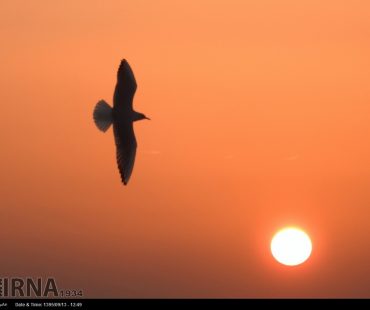
The migratory birds arrived on Bushehr coast in the north of Persian Gulf. The migratory birds come from Siberia and north of Caspian sea to Persian Gulf coasts. Bushehr is also an important winter habitat of these birds.
Bushehr Province is one of the 31 provinces of Iran. It is in the south of the country, with a long coastline onto the Persian Gulf. Its center is Bandar-e-Bushehr, the provincial capital. The province has nine counties: Asaluyeh, Bushehr, Dashtestan, Dashti, Dayyer, Deylam, Jam, Kangan, Ganaveh and Tangestan. In 2011, the province had a population of approximately 1 million people.
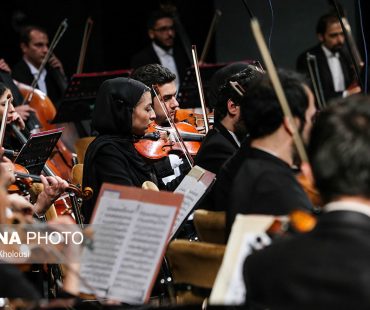
Prominent Iranian maestro Shahrdad Rohani conducted a performance by Tehran Symphony Orchestra in Tehran’s Vahdat Hall on Thursday evening. The Tehran Symphony Orchestra founded in 1933, is Iran’s oldest and largest symphony orchestra.
It was founded as the Municipality Symphony Orchestra by Gholamhossein Minbashian, before entering its modern form under Parviz Mahmoud in 1946. In the years that followed, conductors such as Rubik (Ruben) Gregorian, Morteza Hannaneh, Haymo Taeuber, Heshmat Sanjari, and Farhad Meshkat took over as the conductors of the Orchestra.
About Shahrdad Rohani
With an international reputation as a conductor and composer, Rohani is one of the most sought after, successful conductors on the music scene today.
Educated at the Academy and Conservatories of Music in Vienna, Austria, Rohani has been the recipient of several important scholarships and awards both in Europe and United States. These include the A.K.M Scholarship, Vienna, Austria, and the ASCAP Scholarship, Los Angeles, California.
Shahrdad Rohani is the music director and conductor of the COTA symphony orchestra in Los Angeles. He has appeared as a guest conductor with a number of prestigious orchestras including, the London Royal Philharmonic concert orchestra, Minnesota Symphony orchestra, Colorado Symphony, San Diego symphony, Indianapolis Symphony, New Jersey Symphony, Zagreb Philharmonic and the American Youth Symphony and others.
Rohani conducted an open-air concert with the London Royal Philharmonic Concert Orchestra in the Parthenon, Athens, Greece. This concert was acclaimed by both critics and audience and became the most widely viewed program ever shown on Public Television in United States.
In December of 1998 Shahrdad Rohani was commissioned by the government of Thailand and the committee of the 13th Asian Olympic Games to compose and conduct the music for opening ceremonies. The composition became the most popular song of the Asian Games.
Rohani has recorded several classical CD’s with the Slovak Radio Symphony orchestra for Discover/Koch International including the Tchaikovsky Ballet music which received raging reviews by the media including the Intune Magazine in Japan.
In 1999 Shahrdad Rohani received the Thailand’s Pikanes award, the country’s most prestigious music award for an outstanding orchestral performance. The award is considered the highest artistic achievement.
Shahrdad Rohani is especially well known to the world for conducting film music

Jungles of Behshahr in the Mazadran province, north of Iran, is one of the most beautiful regions in fall.
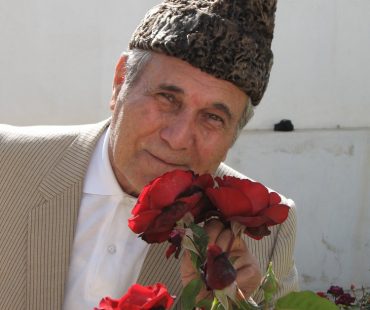
Iranian prominent eulogizer Salim Moazzenzadeh Ardabili, best known for his sincere heart-rending panegyrics in mourning ceremonies for Imam Hossein (AS), passed away at 80 on Tuesday.
Born in Ardabil province in a religious family, world-famous Salim followed his father and brother’s path, also known for their religious odes in mourning for the Fourteen Infallible Household of Prphet, especially Imam Hossein (AS). His mourning recitations in processions on Ashura and Muharram and other religious occasions was usually in Azeri language which is very heart-rending even for those who did not understand the language. His most well-known and viral piece of eulogy in Azeri language was for Hazrat Zeinab (PBUH):
His father Abdul Karim Moazzenzadeh Ardabili was himself the first Moazzen to recite prayer call (Azan).
Azan by Salim Moazzenzadeh Ardebili
Karim Moazzenzadeh passed away in 1947 and his other son, Rahim Moazenzadeh called out to prayer after him. Rahim Moazenzadeh’s famous prayer call (Azan) is in Bayat Tork, Persian music style, and is still heard from radio and television.
Salim dedicated his voice to Imam Hossein and after decades of selfless service in promoting religious teachings with Divine odes rested in peace at 80.
Photo: Funeral of Salim Moazzenzadeh Ardebli
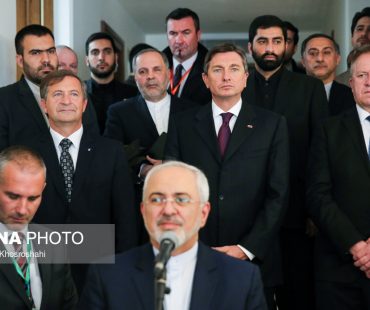
The embassy of Slovenia reopened in Tehran today after 4 years.
Slovenia‘s President Borut Pahor, Iran’s foreign minister Mohammad Javad Zarif and some other senior officials of both countries attended the reopening ceremony.
Slovenian acting chargé d’affaires to Iran dispatched to Tehran for reopening the country’s embassy two months ago.
He headed to Iran to take the necessary steps to reopen the embassy.
Borut Pahor held talks with Iranian high ranking officials following his arrival in Tehran.
He met with the Supreme Leader of the Islamic Republic of Iran and also President Rouhani.
President Rouhani had stated that both sides share common interest on different subjects, adding Iran values expanding ties with European states.
President Rouhani stressed the importance of strengthening ties with European Union, noting the Joint Comprehensive Plan of Action has paved the ground for better mutual cooperation with world countries.
Heading a high-ranking politico-economic delegation, Slovenia’s President Borut Pahor arrived in Tehran on Monday and held talks with Iranian senior officials.